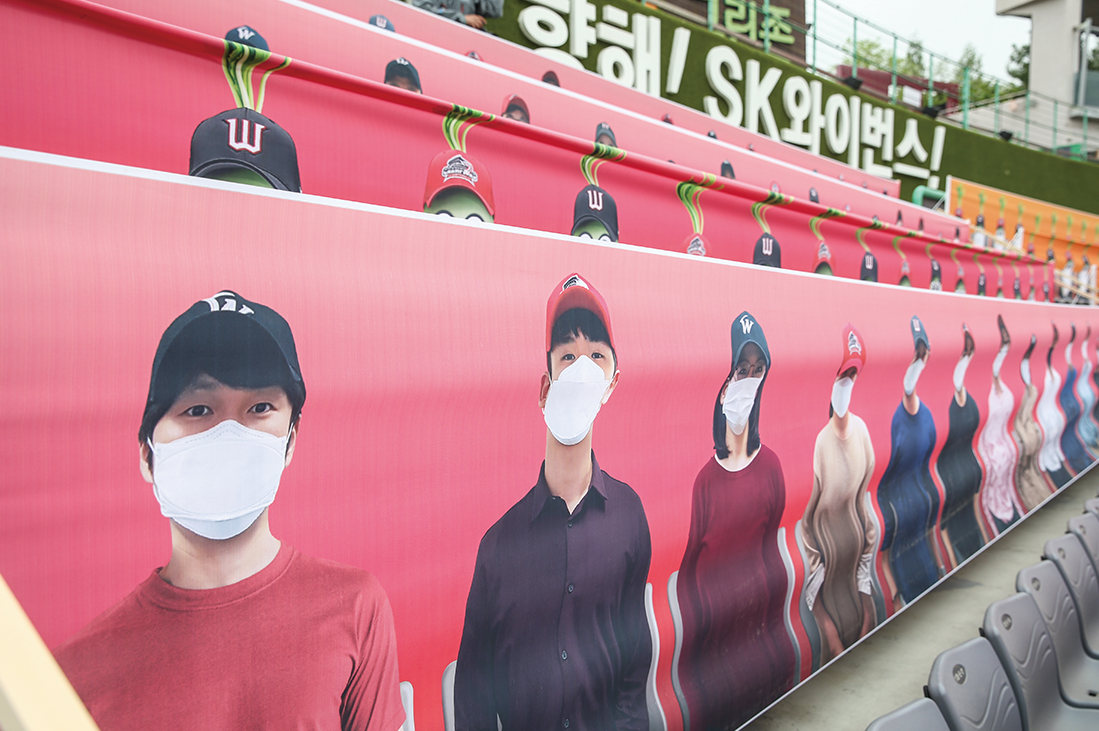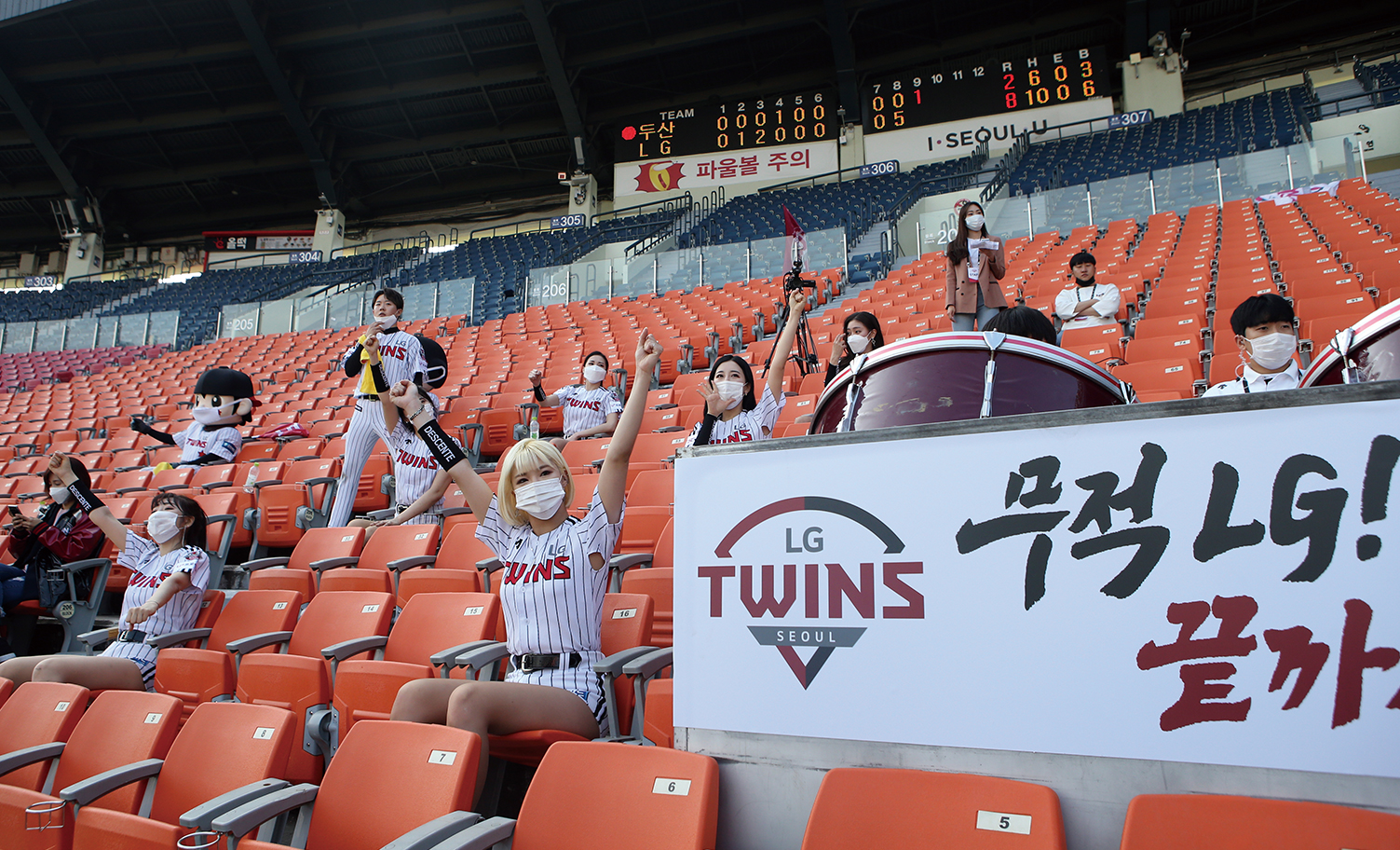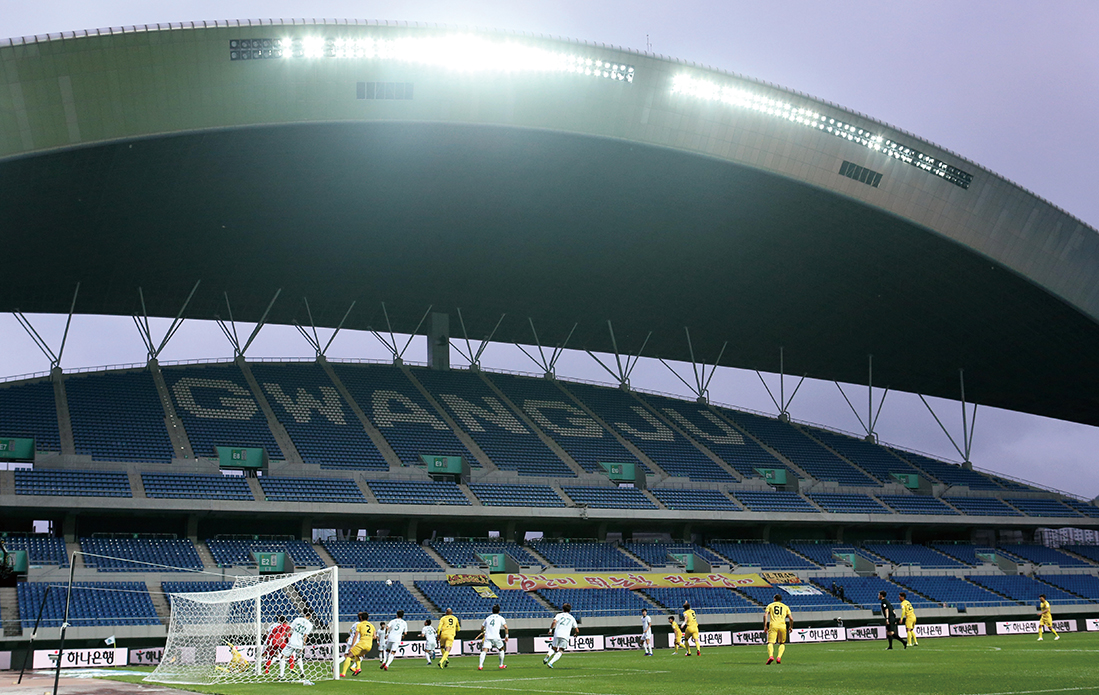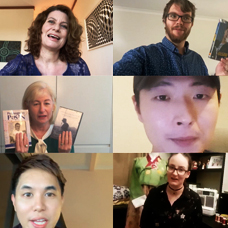Culture Vulture
Winning Me Over
Korean Baseball
The first time I went to a pro baseball game in Korea was unforgettable, though I don’t remember at all how it went. Few sporting events can match the games of the Korea Baseball Organization (KBO) in drama and intensity, especially the electric atmosphere and the ability to instantaneously win over a baseball skeptic like myself. Even if you don’t care for the sport like I used to, going to a pro game in Korea is well worth your time.
Written by • Tim Alper
As a Brit, coming from a country where few people have even seen a baseball game on TV or at a stadium, I had absolutely no interest whatsoever in baseball when I first came to Korea.
And during my first few years of living in Korea, things stayed that way. Though I grew increasingly aware of the professional baseball league here, the Korea Baseball Organization (KBO), I paid it little attention, changing the channel with disinterest whenever a TV station started to air a game. When coworkers started talking about baseball, my attention wandered, and whenever friends suggested going to watch a game at a ballpark, I made an excuse not to go.
As a lifelong soccer fan, I assumed I had no place in my heart for any other sport. To be honest, I didn’t even know the rules of baseball or cared to learn them. All of that went into the trash, however, on that fateful day a Korean friend finally talked me into attending a KBO game.
World-class Talent

The baseball stadium’s empty seats are filled with placards showing KBO fans wearing masks. © Korea Baseball Organization
Watching a game live is not unlike seeing a pop music concert; both have the ability to take thousands of spectators out of their normal mind frames and into shared euphoria. But to get crowds to that state, two things are needed: a quality product and a willing, pre-disposed audience.
The KBO ticks both of these boxes.
In quality, few baseball leagues outside the Americas can hold a candle to Korea’s, mainly because aside from Japan, there are so few leagues of note outside the Americas. This helps the KBO attract global talent.
The Korean league is unique in that its teams are all funded by some of Korea’s biggest and wealthiest conglomerates. As these business groups are often wary of being outdone by their rivals, they spend big on their teams, paying for state-of-the-art training facilities and splashing big money for both elite home-grown talent and up to three international players.
Many foreign players in the KBO have played in Major League Baseball (MLB) of the U.S., thus they’ve cut their teeth in the most competitive league on the planet. Some go on to set up shop permanently in Korea, playing most of their careers in the country or even retiring there and going on to coach new generations of young players.
Many Korean stars have also been drafted by MLB teams, and later return home ready to share their knowledge.
A huge and unrelenting groundswell of baseball popularity also feeds into the above. Korea is awash with little leagues, academies and amateur teams. Go to any park or schoolyard to see young children (and often their parents) with baseball gloves, throwing and catching balls until the sun goes down.
This has fueled a talent boom in Korean baseball, culminating in the national team placing third in the inaugural World Baseball Classic in 2006 and runner-up three years later. In between came Korean baseball’s watershed moment: the gold medal at the 2008 Summer Olympics in Beijing with a 3-2 defeat of the mighty Cuba in the final.
So if you’re looking for top-level baseball played at the highest level, you can certainly find it in abundance in the KBO.
Fan-tastic Frenzy

Professional cheerleaders and the cheering squad are at the sparsely populated stands. © Korea Baseball Organization
Quality alone will only get you so far, however. Fortunately, Korean fans know how to go to town. While MLB games are often relatively sedate, spectators in the KBO simply cannot sit still. Both home and away teams bring professional cheerleaders (both male and female) equipped with stages and sound systems.
To many, these cheerleaders are not an amusing aside to the action like in other sports. Rather, they are the action, performing relentlessly and bouncing around with enviable levels of energy throughout the game. They lead a series of chants that the crowd follows along with in raising excitement, reaching a breathless peak when their team is up to bat.
Most of the chants are based on well-known pop songs and are incredibly easy to learn, mainly because the lyrics are primarily the batter’s name chanted over and over, occasionally interspersed with easy phrases like “Hit it!” or “Home run!” Accompanying follow-along arm movements or gestures are also mandatory.
For those squeamish about the idea of attending a game where everyone but you knows all the words to the chants, as well as the accompanying gestures, no need to fear. Just follow the cheerleaders. Within the space of a single inning, nobody can tell the difference between you and a dyed-in-the-wool fan who hasn’t missed a game in years.
The atmosphere is exuberant and family friendly, food and beer are plentiful, and crowd trouble almost never occurs even when fans get a little tipsy, as most drinkers stay well within their limits. Animosity against opposing teams is also rare, with most fans on amicable terms with those of other teams.
The bear pit for fan interaction is the area behind home base, meaning that if you prefer a quieter viewing experience, take a seat in the upper stands or the outfield. But newbies to baseball, the KBO in particular, should seek out the bear pit — you’ll be hooked in minutes.
Fever Pitch

The start of Korean pro soccer has attracted international interest amid the coronavirus pandemic. © YonhapNews
My first time at a KBO game was unforgettable, though I cannot remember which teams were playing or who won. What was so memorable was not so much the sport itself but the electric atmosphere at the ballpark, as well as the game’s ability to suck in a baseball-skeptical non-fan like myself in such a short time.
Like the rest of the crowd, I was swept away with the moment, singing the chants at the top of my lungs in praise of players I’d never even heard of before the game.
The players tap into the atmosphere, feeding it with regular interactions with the crowd, theatrical bat-tossing antics (much frowned upon in MLB but performed with boundless glee in the KBO) and jubilant onfield celebrations whenever a run is scored.
Thus the KBO unsurprisingly has many non-Korean fans, including a select few who have become minor celebrities among fan bases. With the KBO now broadcast to new TV audiences in the U.S. (albeit without fans for the time being), millions of international fans are getting a taste of what this league has to offer.
Once you’re bitten by the KBO bug, it’s hard to shake off. Though it’s been a while since I last attended a game, watching it on TV is now a thrill for me. Few sports can match the KBO in drama, especially during the Korean Series, where the league’s two best teams face off in pursuit of the championship.
Even if baseball isn’t your thing (like it used to be for me), the KBO is certainly worth your time.




















